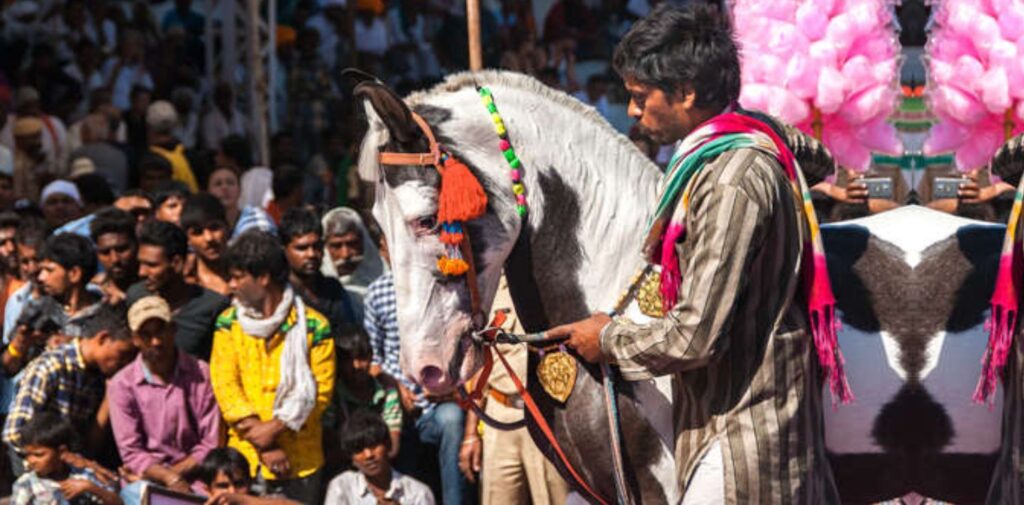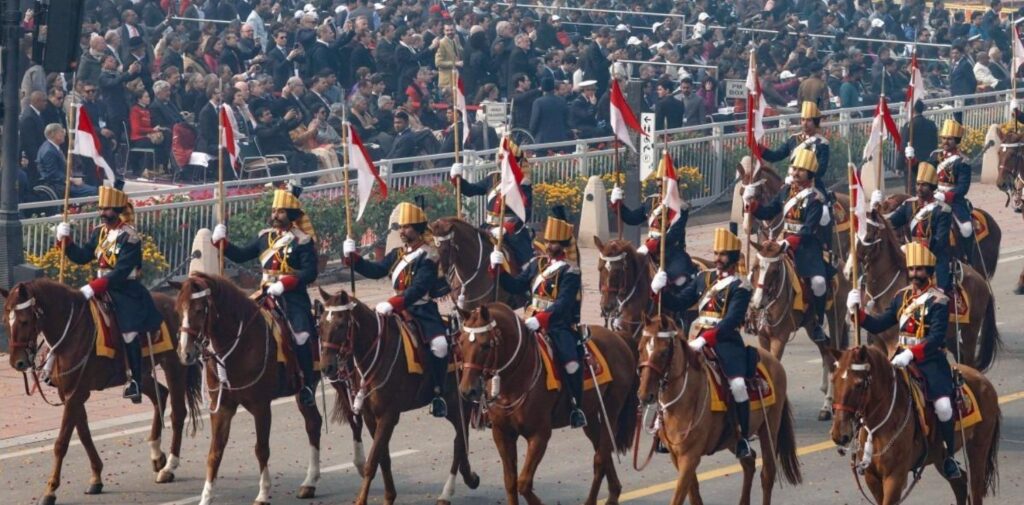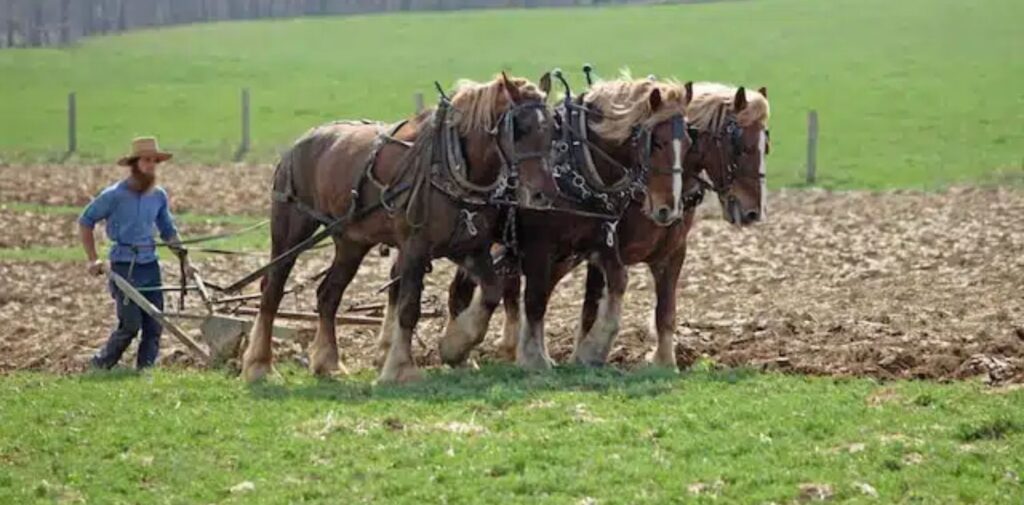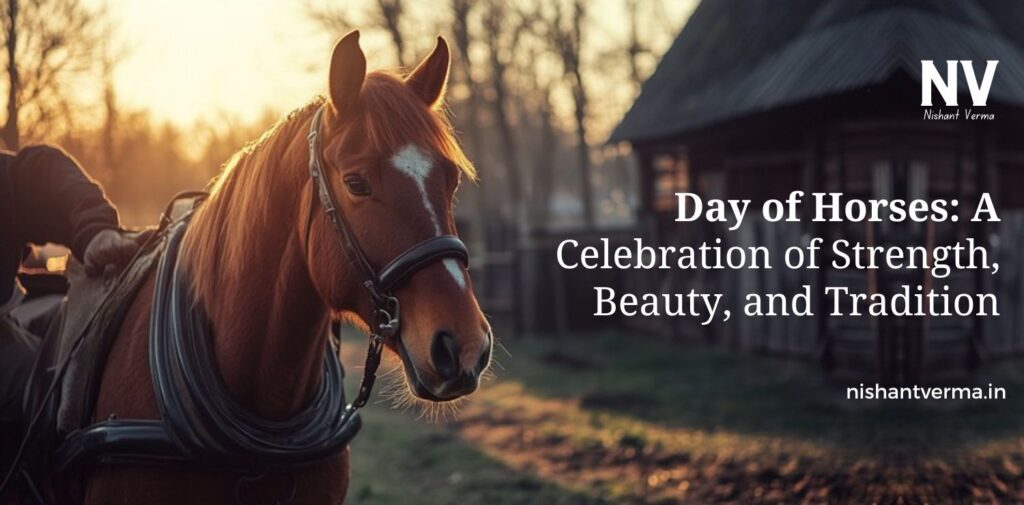On 13th December, India celebrates a special day dedicated to one of the most majestic and graceful animals – the horse. This day is often known as the Day of Horses, a day to honour the important role horses have played throughout history, culture, and traditions in India. Whether through their role in ancient battles, their use in festivals, or their presence in daily life, horses have been a significant part of Indian society for centuries.
Historical Significance of Horses in India
In India, horses have a rich history dating back to ancient times. The first evidence of horses in India can be traced to the Indus Valley Civilization, where seals and artefacts have depicted horses. However, it was during the Vedic period (around 1500 BCE) that horses were truly celebrated. The Ashvamedha Yajna (Horse Sacrifice) was a prominent ritual performed by kings to demonstrate their power and to invoke blessings from the gods. The horse, known as Ashva in Sanskrit, was a symbol of strength, speed, and power.
Horses were also crucial during battles, where they were used as mounts for warriors. Indian kings and emperors, like Maharana Pratap and Shivaji Maharaj, rode strong and swift horses in their battles. The horse became a symbol of royalty and valour, and their bravery on the battlefield earned them respect and admiration.

The Role of Horses in Indian Culture
Apart from their role in battles, horses have always been an integral part of Indian culture, especially in rural and agrarian communities. In many villages, horses are used for transporting goods, and people, and even for farming tasks. In Rajasthan, horses are still a common sight during festivals, fairs, and cultural events, where they are beautifully decorated and paraded.
The Marwari horse, a breed native to Rajasthan, is particularly well-known for its unique appearance and stamina. These horses have been revered for their beauty, agility, and their ability to withstand the harsh conditions of the desert. The Marwari horse is an important part of Rajasthani culture, often used in royal processions and festivals.
Horses in Indian Festivals
In India, horses are often a part of various religious and cultural festivals. One of the most famous festivals where horses play an important role is the Pushkar Fair in Rajasthan, held every year in the month of November. While the Pushkar Fair is primarily known for its camels, it also features a grand horse market where people buy, sell, and showcase horses. These horses are dressed in bright colours and intricate ornaments, making them a sight to behold.
In addition, horses are featured in several traditional folk dances, such as the Ghoomar dance of Rajasthan, where dancers circle the horse, performing synchronized steps. Horses also feature in several regional fairs, like the Kumbh Mela, where they are part of the religious processions. These horses are treated with great respect, and their well-being is always a top priority during such events.
The Importance of Horses in Modern India
In modern-day India, while the use of horses for transportation has decreased due to motor vehicles, they still play an essential role in rural areas. Many farmers in hilly regions use horses to carry goods across rugged terrain where vehicles cannot reach. In addition, horses are still used in traditional practices, such as jatras (religious processions), and they continue to be a symbol of status and tradition in certain parts of India.
The equestrian sport, particularly Polo, is also an important part of India’s heritage. India is one of the birthplaces of Polo, and the sport remains popular among the royal families and elites. Polo tournaments and equestrian events, such as show jumping, dressage, and racing, have a growing fan base in the country.

Horses and Their Connection with the Indian Military
One of the most prominent aspects of horses in India is their historical connection with the Indian military. Horses played a key role in the Indian army during colonial times and even after independence. The cavalry divisions of the Indian Army, which were made up of soldiers mounted on horses, were crucial in battles, especially during World War I and World War II. The bravery of these soldiers, often riding horses into battle, is still remembered and honoured.
Today, while modern technology and machinery have taken over most military operations, the Indian Army still has a cavalry division that honours the legacy of these horses. The President’s Bodyguard, one of the oldest regiments of the Indian Army, still rides horses in ceremonial events, such as the Republic Day parade in Delhi.
Horse Breeding and Preservation in India
In recent years, efforts have been made to preserve and promote the different horse breeds in India, such as the Marwari, Kathiawari, and Zanskari horses. These breeds are unique to India and are being protected through breeding programs to ensure that they do not become extinct.
India’s equestrian community also focuses on improving the quality of horses and training riders in various disciplines. Various equestrian clubs and institutions across the country train individuals in the art of horse riding, show jumping, and other equestrian sports.

The Challenges Faced by Horses in India
Despite the importance of horses in India, several challenges need to be addressed. In urban areas, horses used for tourist rides or weddings are often subjected to harsh conditions, including poor nutrition, heavy loads, and lack of proper medical care. Animal welfare organizations have raised concerns about the treatment of these horses and have called for stricter regulations to ensure their well-being.
Additionally, with the rise of motor vehicles and modern farming techniques, the demand for horses in transportation and agriculture has decreased, making it harder for some communities to maintain their horses.
Conclusion: Day of Horses
The Day of Horses on 13th December is a day to remember and appreciate the role of horses in shaping India’s history, culture, and traditions. It is a time to reflect on the connection between humans and horses, which goes beyond mere utility and touches upon the bonds of loyalty, trust, and admiration. As we celebrate this day, it is important to ensure that horses are treated with the care and respect they deserve, so that they continue to be a part of India’s rich heritage for generations to come.




